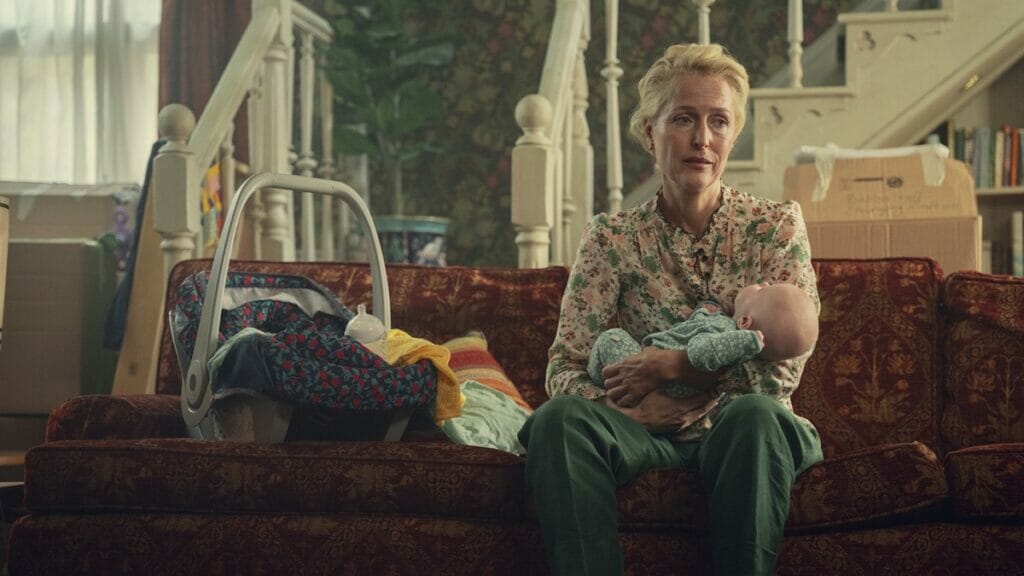Read also:
How to Watch FX Live Without CableHow To Watch AMC Without CableHow to Watch ABC Without CableHow to Watch Paramount Network Without CableDespite some early signs of unraveling, Netflix’s best original comedy comes out on top.
This piece was written during the 2023 SAG-AFTRA strike. Without the labor of the actors currently on strike, the works being covered here wouldn’t exist.
There’s a moment in Sex Education Season 4’s first episode where a dark thought crosses one mind. “Wait…was this always JUST a sitcom?”
There is, of course, nothing inherently wrong with sitcoms. Some of my favorite shows are sitcoms and all that. But for three seasons, critics and fans have responded to Sex Education more like a multi-layered hour-long dramedy. However, Season 4, with its numerous jump-the-shark elements—new baby, new locations, separating characters, revisiting old romances—and groan-worthy “jokes”—what if a school but super woke?—leaves one wondering if not only its final season but those that proceeded were thinner than audiences realized. What if we overestimated the show all along?
Thankfully, Sex Education Season 4 quickly demonstrates that those concerns are unwarranted. Indeed, the series has always had a bit of hack in its DNA. It’s use of 80s teen comedy tropes and sitcom setups are there from day 1. However, now as then, it’s what the show does with them that matters. And in the hands of show creator Laurie Nunn and her team, the series once again overperforms its pop culture touchstones.

Take, for instance, the new baby storyline. A staple of long-running sitcoms is adding a child when the initially child members of the cast get some combination of too old, too “scandalous,” and/or no longer little kid cute enough. Instead, new baby Joy sharpens focus on Otis’s (Asa Butterfield) mother, Jean (Gillian Anderson). In becoming a parent to an infant once again, audiences see Jean out of her element and vulnerable in a way she’s never been in the series before. Additionally, it gives us insight into how she became the delightful sex therapist we know today through looks at her past and the arrival of her seemingly less well-put-together sister Joanna (Lisa McGrillis). What could’ve been a tossed-off cuteness delivery system for a cheap pop adds depth to Jean and the Milburn family while pondering how society’s inequities land hard on single parents’ shoulders.
That’s not to say all elements are as interesting or fruitful. Cavendish Sixth Form College never fully shakes the early season’s emphasis on how silly progressive it is. As a result, the new cast members largely fail to come to life. They’re well-performed. It’s just that the writers have stuffed Sex Education Season 4 so full, the characters don’t have much space to develop. The same goes for Maeve’s (Emma Mackey) American university co-stars. The notable exceptions are “O” (Thaddea Graham), Otis’s new on-campus sex “therapist” rival, and Thomas Molloy (Dan Levy, the best use of his specific talents since Schitt’s Creek), Maeve’s professor and a respected but frustrated writer. They get enough screen time and personality to generate friction in a way their other cast members simply do not. Thus, even when O and Otis’s sex therapist election goes ludicrous, she feels real enough to keep it on track.
[I]n the hands of show creator Laurie Nunn and her team, the series once again overperforms its pop culture touchstones.
Otis and Maeve’s “relationship” is another weak spot. My tolerance for on-and-off romance is admittedly more limited than most, but this third or fourth go-round for these two feels undercooked and drawn out. Mackey and Butterfield have undeniable chemistry, but their trials and tribulations feel forced and cliché. Why not let these two generate some heat rather than keep feeding the audience repetitive cycles of misunderstandings and overreactions?
Still, what works really works. Returning supporting players like Cal (Dua Saleh), Aimee (Aimee Lou Wood), Mr. Groff (Alistair Petrie), and Ruby (Mimi Keene) frequently need to throw elbows to get a bit of screentime. However, when they do, they make that effort entirely worth it. The efficiency of storytelling that guides them to new places in their personal development without feeling cheap or rushed is impressive.

Unsurprisingly, though, it is Eric (Ncuti Gatwa) who once again runs away with the season. Arguably as comfortable and expressive of his identity as he’s ever been, there remains an aspect of his life he has still not fully squared: his faith. His consideration of it throughout Sex Education Season 4 is an honest, thoughtful, but never dry affair. Christianity is increasingly associated with bigotry—sadly, not without cause—something the series does not shy away from. Simultaneously, it refuses to leave it there, though, letting Eric explore the idea that, perhaps, there is space in Christianity for him. Moreover, maybe those who say otherwise are the ones who don’t belong. Gatwa’s performance is smart, authentic, and funny. In a show full of great performances, he continues to rise to the top.
The series’ end feels both too soon and a bit too extended, much like high school (or college, if you must) itself. Similarly, while plenty wraps up remarkably satisfyingly, there are frustrating ellipses and rushed conclusions. Nonetheless, Sex Education goes out as it came in: empathetic, silly, intelligent, and forever exceeding its roots.
Sex Education Season 4 hits the books September 21 on Netflix.